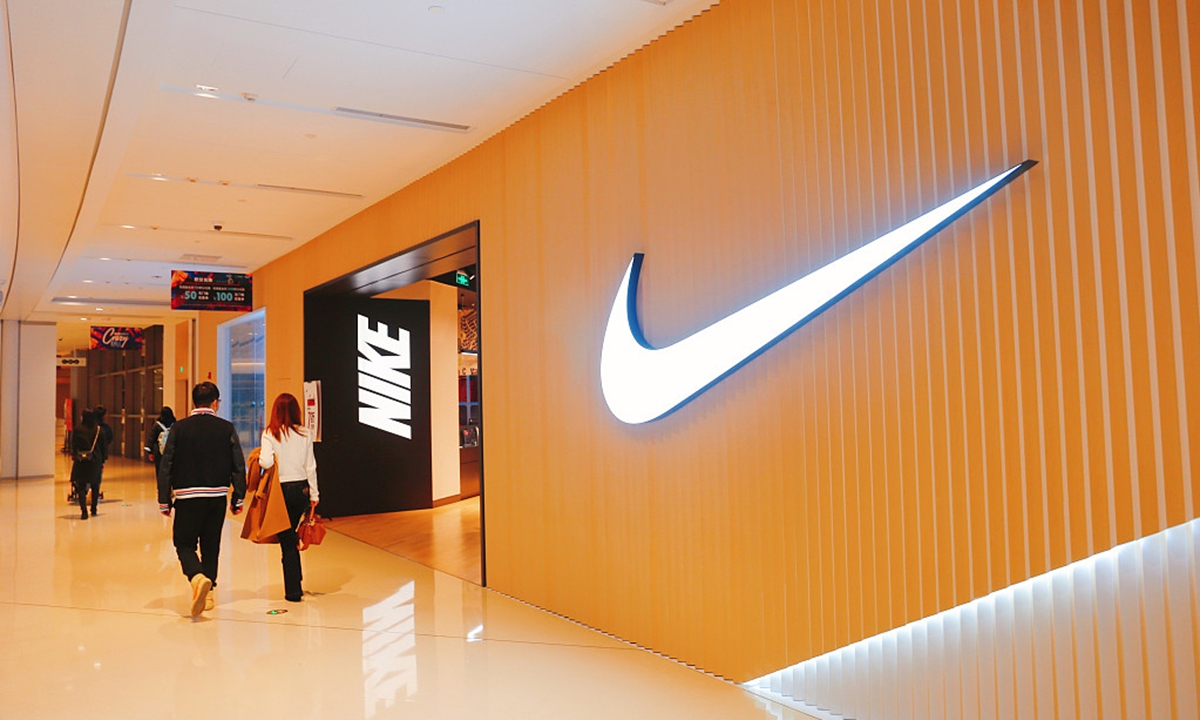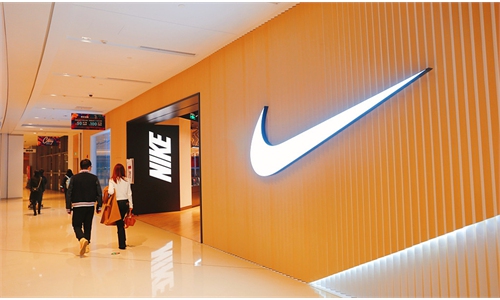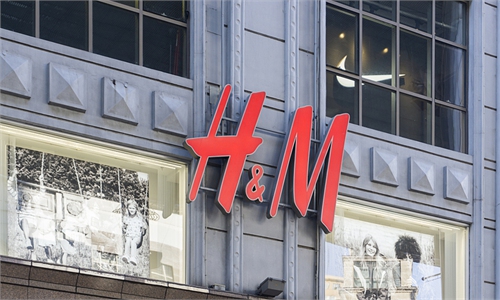Chinese consumers won’t pay for multinational companies’ political correctness that caters to West

Photo: CFP
On Wednesday night, sports brand Nike became a trending topic on China's Twitter-like Sina Weibo. Netizens found the company's statement from last July which said "Nike does not source products from the XUAR (Xinjiang Uyghur Autonomous Region) and we have confirmed with our contract suppliers that they are not using textiles or spun yarn from the region."As the saying goes, you will always reap what you sow. After more than half a year, Nike has finally paid the piper. It is losing its reputation in the Chinese market.
Chinese netizens have the right to look for and expose Western companies' offensive statements regarding Xinjiang affairs. It is their right to express anger. Every country and market has its interests and self-respect. At a time when the ideological conflict between China and the West is seriously intensifying, it is destined to become difficult for multinational companies. They will be challenged to maneuver and balance between different markets. But it is not the Chinese side to shoulder this responsibility.
You cannot ask Chinese side to step back and spare those companies so that they can be "politically correct" in the West — all the while leaving Chinese consumers with damaged dignity. Chinese netizens denouncing those Western companies is a normal reaction of any consumer group, particularly when they feel deeply offended.
The ideological conflict between China and the West will be a long-time struggle. The West has various methods to discredit the Chinese government. But it lacks tactics to deal with Chinese public opinion. From the perspective of morality, what they are most fearful about are powerful Chinese grassroots voices.
China must not only further its opening-up but also stick to principles to safeguard its interests and dignity. We welcome foreign companies to enter China. But they must act with respect to China. The demand is simple and just. Those companies need to comply with local rules and customs. The rules and habits that they follow when they are in the West need to interact with the principles of the Chinese society, from this, they can then make adaptations.
Statements from companies including H&M and Nike made to the Western audiences clashed with the Chinese public's attitudes. I don't think we should define such a clash from a political perspective. We should view it as a market process. This is something that the companies cannot evade to win favor from consumers. We should let the laws of the market determine the outcome of the collision.
Western extreme forces are eager to define natural reactions from the Chinese market to external offenses as "political suppression." We cannot allow them to dominate international perceptions of these conflicts and stigmatize China's investment environment. All multinational enterprises should stay away from geopolitics. It is the West that has forced multinational enterprises to politicize the supply chain issue and pushed them to offend Chinese consumers and the market. It is inevitable that they will be punished by the market. This is the real logic, and we need to make it crystal clear to the world public.
Many foreign companies have been denounced by Chinese netizens. It is in no way contradictory to China's expanding opening-up. H&M, Nike and others are now suffering heavy losses to their reputations in the Chinese market. Enormous investment in public relations has been destroyed instantly. They need to return to the Western society to complain, because they know that for whatever reason, whether they are active or passive, they have indeed done something that is intolerable to Chinese consumers.
The author is editor-in-chief of the Global Times. opinion@globaltimes.com.cn



